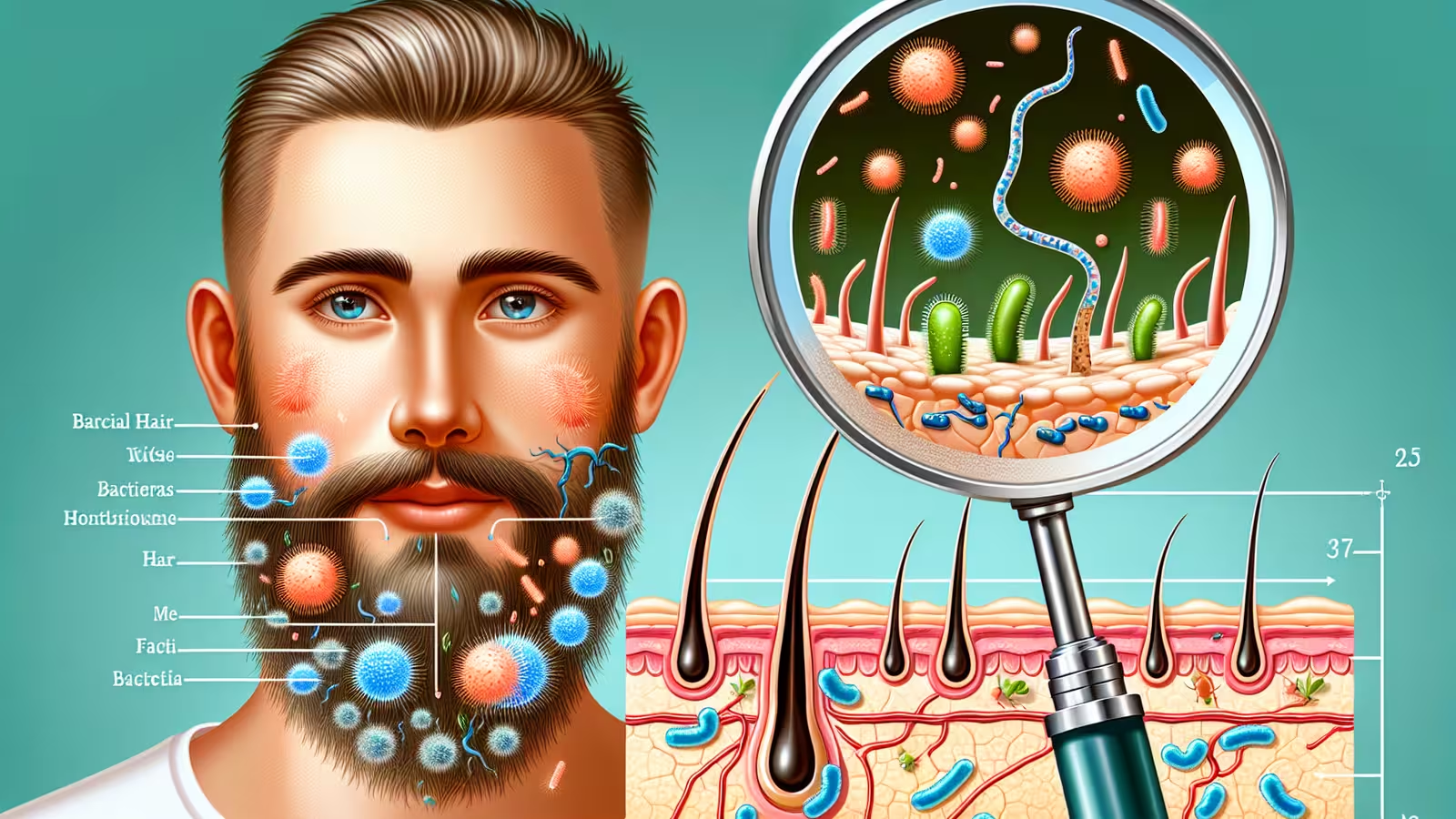3 Minutes
Understanding Microorganisms on Human Skin and Facial Hair
Facial hair, especially beards, has long held diverse cultural meanings—sometimes seen as a symbol of style and masculinity, and other times as a potential source of contamination. But how dirty are beards, really? To answer this, we must explore the world of microbes that live on our skin and hair.
The human skin is a thriving ecosystem home to billions of microorganisms, primarily bacteria, but also fungi and viruses. Facial hair creates a unique habitat, offering warmth and, at times, higher humidity, which supports the growth of these microorganisms. Research shows that beards often have a dense and diverse microbial population, reinforcing the common belief that facial hair may pose hygiene risks.
What Science Says About Beard Hygiene and Health Risks
Studies indicate that the microbial communities on the skin vary depending on location, temperature, pH (acidity/alkalinity), moisture, and available nutrients. Beards can accumulate remnants of food and oils, creating ideal conditions for microbes to multiply. Additionally, beards are frequently exposed to environmental pollutants and new bacteria, particularly through frequent hand-to-face contact.
Scientific concerns about beard hygiene date back over 50 years. Early experiments suggested facial hair could harbor bacteria and bacterial toxins, even after washing. This led to the persistent notion that beards act as bacterial reservoirs, potentially increasing the risk of transmitting infections—an idea that raised particular concern for healthcare workers and hospital environments.
However, research in recent decades has produced mixed results. While some hospital-based studies found that bearded staff had slightly higher levels of bacteria compared to clean-shaven colleagues, other studies found no significant difference in bacterial counts or infection rates among patients treated by surgeons—whether they had beards or not. For example, a comprehensive study published in the "Journal of Hospital Infection" revealed that the risk of infection was not higher for patients treated by bearded doctors wearing surgical masks.
Rare Cases: Beard-Related Skin Infections and Parasites
In rare cases, beards can facilitate the spread of certain skin infections. Conditions like impetigo—a contagious, pustular rash typically caused by the bacterium Staphylococcus aureus—may be associated with facial hair, as this microorganism can commonly inhabit beards. Furthermore, in situations of poor hygiene or close contact with infected individuals, lice such as pubic lice (commonly found in the groin area) have been reported to appear in beards, eyebrows, or eyelashes.
Best Practices: Maintaining Beard Hygiene and Skin Health
Poorly maintained beards can lead to irritation, inflammation, and skin infections. The underlying skin is rich in blood vessels, nerve endings, and immune cells, making it vulnerable to both environmental and microbial factors. The build-up of natural oils (sebum), dead skin cells, food particles, and airborne contaminants beneath beard hair can further trigger skin issues and promote the growth of bacteria and fungi.
Dermatologists and hygiene experts strongly advise daily washing of the face and beard to remove dirt, oils, allergens, and dead skin—helping to minimize microbial build-up. Regular beard grooming is also recommended: use moisturizers to prevent dryness, comb out trapped debris with specialized beard brushes, and routinely trim to maintain health and appearance. These habits not only promote hygiene but also contribute to the overall vitality and attractiveness of facial hair.
Conclusion
So, is having a beard inherently unhygienic or dangerous? The scientific consensus suggests that the level of hygiene depends largely on one’s grooming routines and personal care. A well-maintained beard does not pose significant health risks—and with proper washing and trimming, the dangers once feared are largely unfounded. In fact, beards can be just as healthy as clean-shaven skin, challenging outdated perceptions about facial hair and cleanliness.



Comments